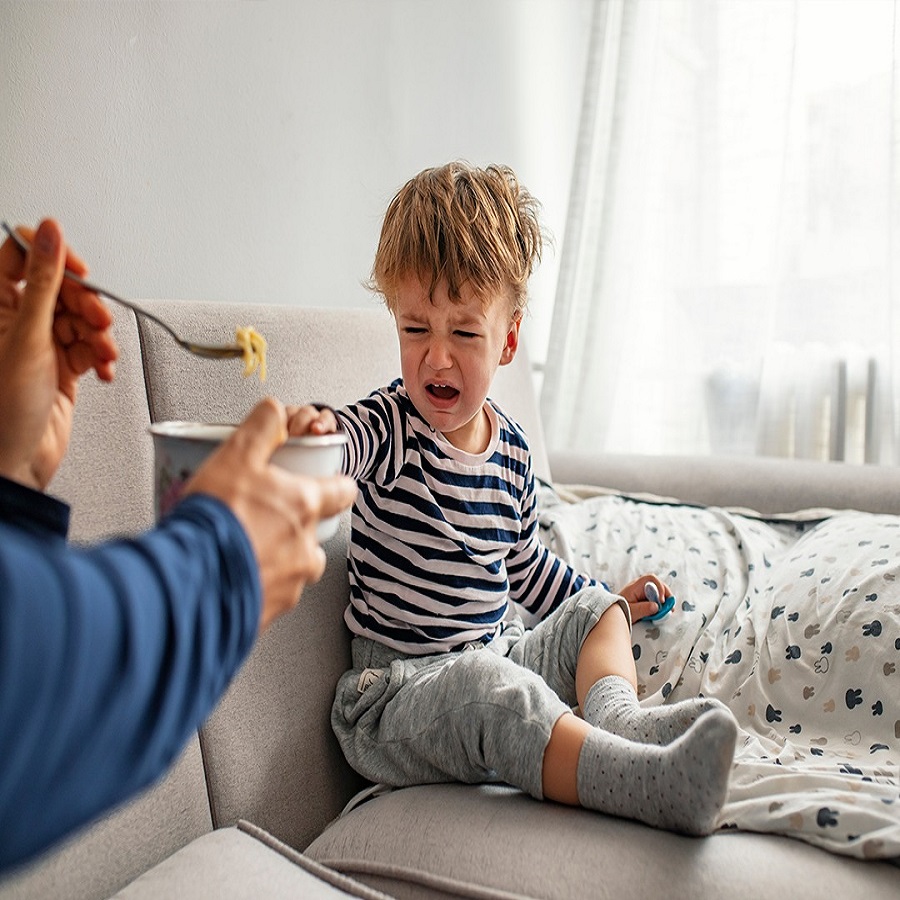Understanding Toddler Aggression
Understanding toddler aggression is key in addressing why a toddler might hit one parent but not the other. Aggression in toddlers is a normal part of child development. At this age, children are learning how to express emotions. However, expressing these feelings physically is common, as their verbal skills are still developing. Toddlers may hit when they feel overwhelmed, frustrated, or need attention.
In handling toddler aggression, it is important to note that it’s rarely personal. It’s a toddler’s way of navigating their complex emotions. For parents asking, ‘why does my toddler hit me, but not daddy,’ it’s often a case of different triggers and responses between parents. Mums and dads may inadvertently reinforce certain behaviors, leading to a toddler expressing aggression toward one but not the other.
When your toddler exhibits aggressive behavior, remain calm. Offer clear, consistent guidance. Acknowledge their feelings but set firm boundaries about acceptable ways to express them. For instance, guide them to use words or point to pictures that represent their feelings. Doing so can help reduce the incidents of hitting and other forms of aggression. Your understanding and response to this behavior play a crucial role in helping your toddler learn to manage their emotions effectively.

Common Reasons Why Toddlers May Show Preference in Hitting
Toddlers sometimes show a preference for hitting one parent over the other. This behavior could stem from various factors. Let’s explore some common reasons:
Different Parenting Styles
Parents may have different ways of interacting with their toddler. One parent may be more lenient, while the other sets firmer limits. The toddler may hit the stricter parent out of frustration or the more permissive one to test boundaries. These distinct styles can lead to your toddler displaying aggression differently with each parent.
Emotional Connections
Toddlers can have stronger emotional bonds with one parent. This bond can make them feel safer expressing negative feelings through hitting. ‘Why does my toddler hit me, but not daddy?’ Perhaps because the child feels a different emotional comfort with each parent,
reflecting their selective aggression.
Parental Reactions
Different reactions from parents can influence a toddler’s behavior. If one parent reacts strongly to hitting, the toddler may repeat the action to get attention. In contrast, if the other parent remains calm, the toddler may not find hitting them as rewarding or attention-grabbing.
Seeking Attention
Hitting can be a way for toddlers to get immediate attention from a parent. If one parent is often busier or less available, the toddler may hit them more to secure their focus and presence. Tactful management of these behaviors can help redirect such actions into more positive interactions.
Understanding these reasons is vital for addressing the issue effectively. It can shed light on the question of ‘why does my toddler hit me, but not daddy,’ while charting a course for consistent and loving discipline.
The Role of Gender Perception in Toddler Behavior
Gender perception can play a significant role in a toddler’s behavior. From a young age, children absorb societal norms and stereotypes, which may influence how they interact with their parents. It’s common for toddlers to view their mother as the primary caregiver, often resulting in a stronger emotional dependence. Consequently, this might lead to a child feeling more at ease expressing anger or aggression toward the mother—the ‘why does my toddler hit me, but not daddy’ scenario.
Mothers are typically seen as nurturers and may provide more comfort during times of stress, which can inadvertently make them the target for physical outbursts when a toddler can’t regulate their emotions. On the other hand, fathers might be perceived as figures of authority or playmates, leading toddlers to show aggression less frequently towards them.
This gender-based perception extends beyond the family circle and reflects broader cultural expectations. For example, boys are often encouraged to be tough and may mask their vulnerability, which can translate into selective aggression towards the parent they subconsciously consider softer or more permissive. Meanwhile, girls are sometimes socially conditioned to be more emotionally expressive, which could be reflected in their interactions with both parents.
Understanding these gender perceptions can help parents navigate toddler aggression. Acknowledging these influences allows for targeted strategies to address why a toddler might hit one parent and not the other. Parents can work together to shift these perceptions by sharing caregiving roles, setting consistent boundaries, and openly displaying emotions in healthy ways.
Strategies to Manage Aggressive Behavior Towards One Parent
When you’re wondering ‘why does my toddler hit me, but not daddy,’ it’s crucial to develop strategies. Here’s how to manage aggressive behavior towards one parent:
Consistency is Key
Both parents should align on how they respond to aggressive behavior. Inconsistency can confuse toddlers and may reinforce negative actions.
Talk About Emotions
Encourage your toddler to verbalize feelings instead of acting out. Give them words to express emotions and acknowledge their efforts when they do.
Time-Outs
Use time-outs as a calm way to illustrate consequences for hitting. Make sure they understand why the time-out is happening.
Positive Reinforcement
Reward good behavior with positive attention. Praise your toddler when they handle emotions without hitting.
Unified Front
Stand together as parents. Support each other’s disciplinary actions so your toddler sees you as a team.
Redirect Attention
Distract your toddler with a different activity when they show signs of aggression. It can prevent the hitting before it starts.
Calm Environment
Reduce stressors in your toddler’s environment. A calm atmosphere can decrease occurrences of aggression.
Implementing these strategies can guide your toddler towards healthier ways of expressing emotions, mitigating the question of ‘why does my toddler hit me, but not daddy.’

Creating a Consistent Discipline Approach Between Parents
Creating a consistent discipline approach is essential for managing toddler aggression. When toddlers receive mixed messages from each parent, it can lead to confusion and more frequent outbursts. Here are steps parents can take to ensure they’re on the same page:
Align on Discipline Methods
Parents should discuss and agree on how they will handle aggressive actions. Use methods that both find comfortable and effective. This unity prevents toddlers from exploiting loopholes.
Establish Clear Rules and Consequences
Both parents need to set clear rules about hitting and other aggressive behaviors. They also must agree on the consequences when these rules are broken. Make sure to explain these rules to the toddler together.
Communicate Regularly
Parents should talk to each other about their toddler’s behavior. Share observations and adjust strategies as needed. Strong communication ensures both are acting consistently.
Stay Calm and Unified in Response to Aggression
If a toddler hits, both parents must stay calm. Offer a united front to show that no form of aggression is acceptable, regardless of whom it’s directed at.
Co-Parenting Workshops
Consider attending workshops or reading materials on co-parenting. These resources can provide additional tactics for maintaining a consistent approach.
By establishing a consistent discipline strategy, parents can better address questions like ‘why does my toddler hit me, but not daddy,’ and foster a stable and loving home environment.
The Impact of Emotion and Stress on Toddler Aggression
Emotions run high in toddlers, and stress can make this worse. Strong feelings emerge, but toddlers lack the words to express these. Stress can be from many sources. A change in routine or a new sibling might trigger it. Hitting becomes their expression when they can’t say how they feel. Maybe that’s why a toddler hits mom but not dad. Moms might be around more for the stress times. This makes them an easy target for a toddler’s hit.
Toddlers feel stress just like adults do. They feel it deeply, but they show it differently. These little ones have big emotions and small toolboxes for handling them. Their world is full of big discoveries and challenges. They juggle wants, needs, and rules they don’t fully understand. This confusion can lead to frustration, and sometimes, aggression.
The key is to spot the signs of stress in your toddler. Look for changes in sleep or eating patterns. Watch for clinginess or anger bursts. These signs might tell you your toddler is stressed. When you see this, step in with comfort and help them calm down. It might reduce their need to hit out. It’s about more than just asking, ‘why does my toddler hit me but not daddy?’ It’s about seeing their struggle and helping them cope.
To ease their stress, keep routines as regular as possible. If change is needed, prepare them ahead of time. Explain changes in simple terms, so they know what to expect. Acknowledge their stress, and work through it together. This can show them other ways to deal with tough emotions. You’re helping your toddler grow a bigger toolbox for the big feelings they face.
Remember, your response can either soothe or fuel the fire. Stay calm and offer empathy. This can help your toddler feel understood and less likely to lash out in aggression. Through patience and support, you’re teaching them how to handle life’s stress without hitting. And that’s a valuable lesson that will serve them well beyond these toddler years.
Ways to Reinforce Positive Behavior and Discourage Hitting
Reinforcing positive behavior is key in helping toddlers choose good actions over hitting. Here are effective tactics:
Lead by Example
Show your toddler how to handle emotions calmly. They learn by watching you.
Recognize and Praise Efforts
Notice when your toddler does well. Say ‘good job’ for using words instead of hitting.
Set Clear Expectations
Tell your toddler what you expect from them. Use easy words they understand.
Offer Choices
Give your toddler simple choices. This empowers them and can prevent frustration-fueled hitting.
Stay Positive and Patient
Keep a positive attitude. Patience goes a long way in guiding your toddler.
Use Storytelling
Share stories where characters make good choices. Discuss the stories with your toddler.
Create Reward Systems
Set up a simple reward system. Stickers or tokens for good behavior can motivate.
Encourage Empathy
Teach your toddler to think about others. Ask, ‘how would you feel?’ to build empathy.
By using these methods, you’re helping curb the ‘why does my toddler hit me, but not daddy’ problem. You’re steering them toward positive behaviors in a way they can grasp and remember.

When to Seek Professional Help for Toddler Aggression Issues
While many instances of toddler aggression are normal, there are times when professional help may be needed. If your toddler’s behavior is intense, frequent, or doesn’t improve with consistent parenting, it could be a sign to seek expert advice. Here’s when to consider help:
Consistent or Intensifying Aggression
If aggressive behavior persists or worsens despite your best efforts, a professional can assess underlying issues.
Aggression Impacting Daily Life
When hitting disrupts daily routines, causes harm, or stresses the family, consulting a professional is wise.
Concerns About Developmental Delays
Sometimes aggression is linked to developmental challenges. An expert can provide targeted support.
Your Instincts Say So
Parents know their child best. If something feels off, trust your gut and seek assistance.
When Other Interventions Have Failed
If traditional strategies haven’t helped, a professional might offer new, effective approaches.
Professional intervention can provide tailored strategies and peace of mind to tackle the ‘why does my toddler hit me, but not daddy’ concern. Don’t hesitate to seek support when needed to ensure the well-being of your toddler and family.
